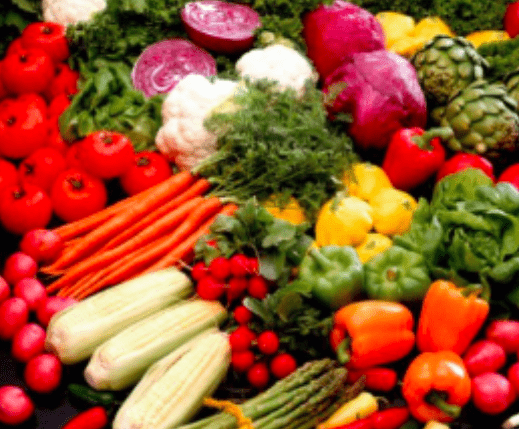Polyphenols are a type of anti-oxidant found in plants especially the red, purple and blue parts of plants.
They help protect us against cellular damage from oxidation and have protective properties for our mitochondria.
Mitochondria are known as the powerhouses of the cell. They are organelles that act like a digestive system which takes in nutrients, breaks them down, and creates energy rich molecules for the cell. The biochemical processes of the cell are known as cellular respiration. Many of the reactions involved in cellular respiration happen in the mitochondria. Mitochondria are the working organelles that keep the cell full of energy.
Keeping our mitochondria in good health is crucial to our wellbeing.
Polyphenols help protect our gut and improve gut bacteria by helping the good bacteria and inhibiting the bad. The gut micro-biome is so essential for our health its' importance can’t be exaggerated. The micro-biome broadly speaking is the bacteria that reside in our digestive system.
The role the good bacteria have is in fostering a strong immune system and keeping us healthy, some bacteria are actually crucial for boosting immunity, keeping our digestive systems running smoothly, our hormone levels balanced and our brains working properly so Polyphenols help our micro-biome.
Polyphenols can also protect your gut from dangerous pathogens. If our gut micro-biome is healthy it has body wide systemic implications for our health and helps us fight for example inflammation. It makes sense then to do everything in your power to improve it and polyphenols in your diet are a good first step, certainly not the only one but a good start.
Polyphenols can help increase your neurogenesis and studies have shown this can increase your levels of Brain derived neurotrophic factor (BDNF) and Brain Nerve Growth Factor, proteins that help in neurogenesis and can improve your memory, learning ability and thinking agility. Polyphenols also help keep your cells strong and healthy, lower blood pressure and improve the flexibility of your arteries. So what foods contain polyphenols? Well mostly brightly coloured fruits and vegetables. Here is a list:
- Coffee
-Berries
- Wine contains reservatrol which is beneficial although the alcohol isn’t
- Almonds
- Chocolate - the higher the cocoa content the better
- Apples/pears, black grapes and grapefruit
- Flaxseed
- Walnuts
- Chestnuts
- Citrus fruits
- Herbs such as sage, rosemary, thyme, basil, marjoram, peppermint, star anise, ginger, celery seed, cumin
- Spinach
- Green tea
- Broccoli
- Asparagus
- Black currants
- Red onions
- Prunes
So eat up those good polyphenol rich food and improve your health and wellbeing.
They help protect us against cellular damage from oxidation and have protective properties for our mitochondria.
Mitochondria are known as the powerhouses of the cell. They are organelles that act like a digestive system which takes in nutrients, breaks them down, and creates energy rich molecules for the cell. The biochemical processes of the cell are known as cellular respiration. Many of the reactions involved in cellular respiration happen in the mitochondria. Mitochondria are the working organelles that keep the cell full of energy.
Keeping our mitochondria in good health is crucial to our wellbeing.
Polyphenols help protect our gut and improve gut bacteria by helping the good bacteria and inhibiting the bad. The gut micro-biome is so essential for our health its' importance can’t be exaggerated. The micro-biome broadly speaking is the bacteria that reside in our digestive system.
The role the good bacteria have is in fostering a strong immune system and keeping us healthy, some bacteria are actually crucial for boosting immunity, keeping our digestive systems running smoothly, our hormone levels balanced and our brains working properly so Polyphenols help our micro-biome.
Polyphenols can also protect your gut from dangerous pathogens. If our gut micro-biome is healthy it has body wide systemic implications for our health and helps us fight for example inflammation. It makes sense then to do everything in your power to improve it and polyphenols in your diet are a good first step, certainly not the only one but a good start.
Polyphenols can help increase your neurogenesis and studies have shown this can increase your levels of Brain derived neurotrophic factor (BDNF) and Brain Nerve Growth Factor, proteins that help in neurogenesis and can improve your memory, learning ability and thinking agility. Polyphenols also help keep your cells strong and healthy, lower blood pressure and improve the flexibility of your arteries. So what foods contain polyphenols? Well mostly brightly coloured fruits and vegetables. Here is a list:
- Coffee
-Berries
- Wine contains reservatrol which is beneficial although the alcohol isn’t
- Almonds
- Chocolate - the higher the cocoa content the better
- Apples/pears, black grapes and grapefruit
- Flaxseed
- Walnuts
- Chestnuts
- Citrus fruits
- Herbs such as sage, rosemary, thyme, basil, marjoram, peppermint, star anise, ginger, celery seed, cumin
- Spinach
- Green tea
- Broccoli
- Asparagus
- Black currants
- Red onions
- Prunes
So eat up those good polyphenol rich food and improve your health and wellbeing.
